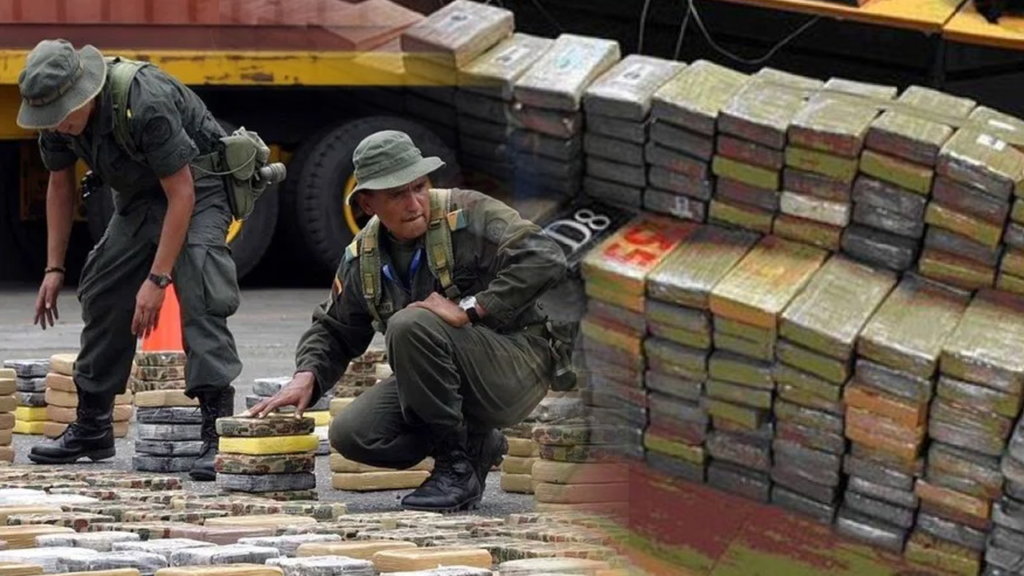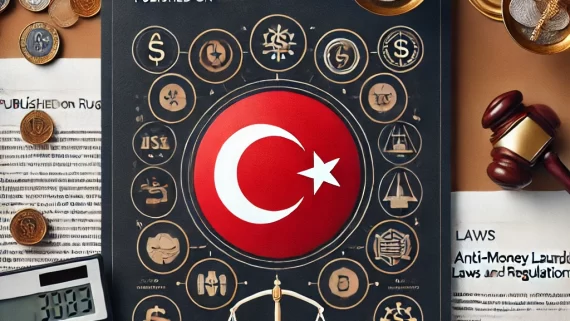Turkey enforces strict criminal and regulatory measures against drug-related activities, particularly due to its position on international trafficking routes. Foreign nationals can find themselves facing severe legal consequences – including arrest, detention, and deportation – for offenses such as possession, transport, or involvement in the trade of narcotic substances, even for substances considered legal in other jurisdictions. Similarly, companies in sectors like pharmaceuticals, chemicals, and healthcare are subject to detailed licensing and monitoring requirements when handling controlled substances. Bıçak Law Firm provides strategic legal defense for foreign nationals accused of drug-related offenses in Turkey, ensuring their rights are protected throughout investigation and trial. In parallel, the firm advises companies on compliance with Turkish narcotics laws, supporting them in navigating regulatory frameworks governing the import, production, sale, and storage of narcotic and psychotropic substances. With extensive experience in both criminal litigation and regulatory advisory, Bıçak offers reliable guidance and representation in this highly sensitive legal area.
Legal Overview of Narcotic Drug Offenses in Turkey
Turkey occupies a critical geographic position between drug-producing and drug-consuming regions, making it a significant corridor for the trafficking of narcotic substances. In response, Turkish authorities have adopted a firm stance against drug-related crimes. The national legal framework, shaped by both domestic policy and international obligations, imposes severe penalties for a wide range of drug offenses. These laws apply uniformly to citizens and foreign nationals, while companies operating in pharmaceuticals, chemicals, and healthcare must comply with a separate layer of strict regulatory controls.
This article offers a comprehensive analysis of the legal consequences of drug-related crimes in Turkey, highlighting the key distinctions between offense types, enforcement strategies, and judicial practices. Special attention is paid to the implications for foreign nationals and corporate actors who may unknowingly fall within the scope of Turkish narcotics legislation.
Classification of Drug-Related Offenses under Turkish Law
Under the Turkish Penal Code (TPC), drug-related crimes are addressed primarily in Articles 188 to 192. These provisions differentiate between personal use, commercial activities, and facilitation of drug use.
- Production, Import, and Export (Article 188/1): Engaging in the unauthorized production or cross-border movement of narcotic or psychotropic substances is among the gravest offenses in Turkish law. Offenders may face imprisonment ranging from 20 to 30 years and heavy judicial fines. The severity of punishment reflects Turkey’s zero-tolerance approach to international trafficking.
- Sale and Supply (Article 188/3): Supplying drugs within Turkey, whether through sale, distribution, or provision to others, carries penalties between 10 to 20 years. This also applies to intermediaries and facilitators.
- Possession for Personal Use (Article 191): Individuals who purchase, receive, or possess drugs for personal consumption face imprisonment from 2 to 5 years. First-time offenders may be offered alternatives such as supervised treatment and probation programs. If the individual complies, prosecution may be suspended or dismissed.
- Facilitation of Use (Article 190): Promoting or facilitating drug use by others, including providing premises for consumption or encouraging use, is punishable by imprisonment ranging from 5 to 10 years.
Aggravating Circumstances and Enhanced Penalties
Certain aggravating factors can significantly increase the severity of penalties:
- Proximity to Sensitive Locations: Crimes committed within 200 meters of schools, military zones, places of worship, or hospitals incur harsher sentences.
- Organized Crime Involvement: Participation in organized criminal networks dealing with narcotics may result in sentences being doubled.
- Type of Substance: Offenses involving highly potent or hazardous drugs such as heroin, cocaine, and synthetic cannabinoids attract enhanced penalties.
- Use of Minors: Involving minors in trafficking or distribution can also lead to sentence increases.
Legal Implications for Foreign Nationals
Foreign nationals are frequently affected by Turkish narcotics laws, often due to a lack of awareness regarding legal classifications. Substances legal in their home countries (such as khat or cannabis) may be strictly prohibited under Turkish law.
Foreigners arrested on drug-related charges are subject to the same judicial process as Turkish citizens, including pretrial detention, investigation, trial, and sentencing. Language barriers, cultural misunderstandings, and lack of familiarity with the Turkish legal system can exacerbate their situation. Convictions can result in prison terms, fines, deportation, and bans on re-entry.
To mitigate risks, foreign nationals residing in or visiting Turkey should be fully aware of local narcotics laws and seek legal guidance immediately if involved in any investigation.
Regulatory Considerations for Companies
Companies involved in the production, import, export, storage, or distribution of narcotic and psychotropic substances are subject to an extensive regulatory regime governed by both the Ministry of Health and international agreements.
Key compliance areas include:
- Licensing and Authorizations: Companies must obtain permits for all stages of handling controlled substances.
- Recordkeeping and Reporting: Strict obligations apply to the documentation and reporting of production volumes, inventories, and transactions.
- Security Measures: Facilities must implement stringent security protocols to prevent diversion or theft.
- Training and Supervision: Staff handling narcotics must be trained and periodically audited.
Violations can lead to the revocation of licenses, administrative fines, criminal investigations, and reputational damage.
Enforcement Practices and Judicial Trends
Turkish authorities implement an aggressive anti-narcotics policy, combining proactive law enforcement operations with strict judicial review. Law Enforcement Forces (Police, Jandarmeria, Coast Guard and Custom Control), particularly anti-narcotics units, carry out surveillance-based operations, coordinated raids, and intelligence-led arrests. Once an arrest is made, suspects are brought before prosecutors and courts, where judicial decisions hinge on evidence such as drug quantity, forensic reports, intent, and witness testimony.
Judicial trends reflect a consistent and often stern interpretation of Turkish Penal Code provisions, especially in cases involving trafficking, organized crime, or commercial distribution.
Yargıtay (Court of Cassation) Case Law Examples
- Yargıtay 10. Ceza Dairesi, E. 2018/5513, K. 2018/9413 (17.12.2018): In this ruling, the Court emphasized that for a conviction under Article 191 (possession for personal use), there must be sufficient technical evidence – such as toxicology results or seized material. The Court overturned the conviction because the prosecution relied solely on the defendant’s uncorroborated statement, with no material evidence.
- Yargıtay 20. Ceza Dairesi, E. 2017/6864, K. 2017/6864: This decision clarified that determining whether drug possession is for personal use or trafficking must consider not only the quantity but also the method of packaging, the suspect’s prior behavior, and other circumstantial indicators. The Court stressed that mere possession of a “large quantity” is not definitive proof of trafficking.
- Yargıtay 10. Ceza Dairesi, E. 2016/2855, K. 2016/7429: The Court upheld a conviction under Article 188 for drug trafficking, where the accused was found with over 10 kilograms of heroin concealed in a vehicle. The decision highlighted the application of increased sentencing due to both the drug type (heroin) and organized concealment methods, qualifying the crime as aggravated trafficking.
- Yargıtay 10. Ceza Dairesi, E. 2013/12973, K. 2015/1472: This ruling set a precedent regarding “proximity to sensitive areas.” The Court upheld enhanced sentencing for drug sale committed within 200 meters of a school, noting that even without intent to sell directly to minors, the spatial factor alone triggered the aggravating clause under Article 188/4.
These judgments demonstrate that the Turkish judiciary gives substantial weight to technical evidence and the factual context surrounding each case. Although courts may favor rehabilitation for minor, first-time possession offenses, they impose harsh penalties in cases involving organized crime, high-risk substances, or distribution near protected zones.
International Drug Operations Involving Turkey
Turkey’s strategic position bridging Europe and Asia has made it a focal point in international drug trafficking routes. Consequently, numerous international operations have been conducted to dismantle drug networks with ties to Turkey:
-
Capture of Comanchero Leaders (November 2023): Turkish authorities apprehended Hakan Ayik and Duax Hohepa Ngakuru, alleged leaders of the Comanchero motorcycle gang, wanted by Australian and New Zealand authorities for extensive drug trafficking and organized crime activities. The arrests were part of a broader crackdown on international criminal organizations operating within Turkey
-
Extradition of Albanian Drug Kingpin (January 2025): Dritan Rexhepi, an Albanian national accused of orchestrating a global drug trafficking network, was extradited from Turkey to Albania. Rexhepi had been arrested in Istanbul in November 2023 and was implicated in coordinating cocaine shipments from South America to Europe.
-
Arrest of Swedish Cartel Leader (July 2024): Alexander G., the leader of a Sweden-based drug cartel and subject of an INTERPOL Red Notice, was captured in Istanbul during a drug raid. His arrest highlighted Turkey’s role as a refuge for international fugitives involved in narcotics trafficking.
-
Seizure of Cocaine Shipments Destined for Turkey (April 2024): International law enforcement agencies have intercepted significant quantities of cocaine en route to Turkey. For instance, Turkish police seized 608 kilograms of cocaine in an operation across multiple provinces, underscoring concerns about Turkey becoming a transit hub for South American cocaine destined for Europe.
-
INTERPOL Operations Targeting Turkish Networks: INTERPOL has coordinated operations targeting Turkish drug trafficking groups operating in Europe. In March 2020, European authorities arrested 13 suspected members of a Turkish drug trafficking group and seized 2.4 tonnes of heroin intended for shipment to Europe, highlighting the transnational nature of these networks.
These operations reflect the collaborative international efforts to combat drug trafficking networks with connections to Turkey, emphasizing the country’s pivotal role in global narcotics routes and the necessity for continued cross-border cooperation.
Frequently Asked Legal Questions
- Can I be prosecuted in Turkey for possessing a substance that is legal in my home country? Yes. Substances such as cannabis, khat, or certain prescription medications may be legal elsewhere but are strictly prohibited under Turkish law. Foreign nationals are subject to the same penalties as citizens and must comply with local regulations.
- What is the penalty for drug trafficking in Turkey? Under Article 188 of the Turkish Penal Code, drug trafficking is punishable by 20 to 30 years of imprisonment and substantial fines. Aggravating factors can result in even harsher sentences.
- Is rehabilitation available as an alternative to prison for drug possession? Yes. First-time offenders accused of personal use may be offered probation and mandatory treatment programs instead of incarceration, provided they cooperate with the authorities and comply with court conditions.
- What should I do if I am arrested in Turkey on drug charges? You should immediately seek legal representation. It is critical to avoid making statements without a lawyer present and to ensure that your rights are protected throughout the process.
- What responsibilities do companies have in handling narcotic substances? Companies in pharmaceuticals, healthcare, and chemicals must obtain licenses and follow strict reporting, storage, and security protocols. Failure to comply can result in criminal prosecution, loss of operating licenses, and severe administrative penalties.
- Can foreign employees of a company be held liable for narcotics violations? Yes. Individual liability is possible, particularly if the employee was directly involved in unlawful conduct. Employers are also subject to regulatory scrutiny for failing to supervise or train staff properly.
Legal Services in Drug-Related Matters
Bıçak Law Firm has significant experience in defending clients charged with drug-related offenses, and advising companies subject to narcotic regulations. Our services include:
- Defense representation during police investigations, detention hearings, and court proceedings
- Legal counsel for foreign nationals facing drug charges, with full language support
- Assistance with obtaining and maintaining regulatory licenses for handling narcotics
- Development of compliance programs for companies operating in sensitive sectors
- Emergency legal support for expats or travelers detained on suspicion of drug offenses
Drug-related crimes in Turkey carry serious legal consequences, whether committed by individuals or corporate entities. Foreign nationals and companies must remain aware of Turkey’s strict narcotics laws and their implications. Proactive legal guidance and compliance efforts are essential to avoid punitive outcomes. Bıçak stands ready to provide expert legal assistance across all stages of criminal and regulatory proceedings related to narcotic substances.
 English
English Türkçe
Türkçe Français
Français Deutsch
Deutsch





Comments
No comments yet.